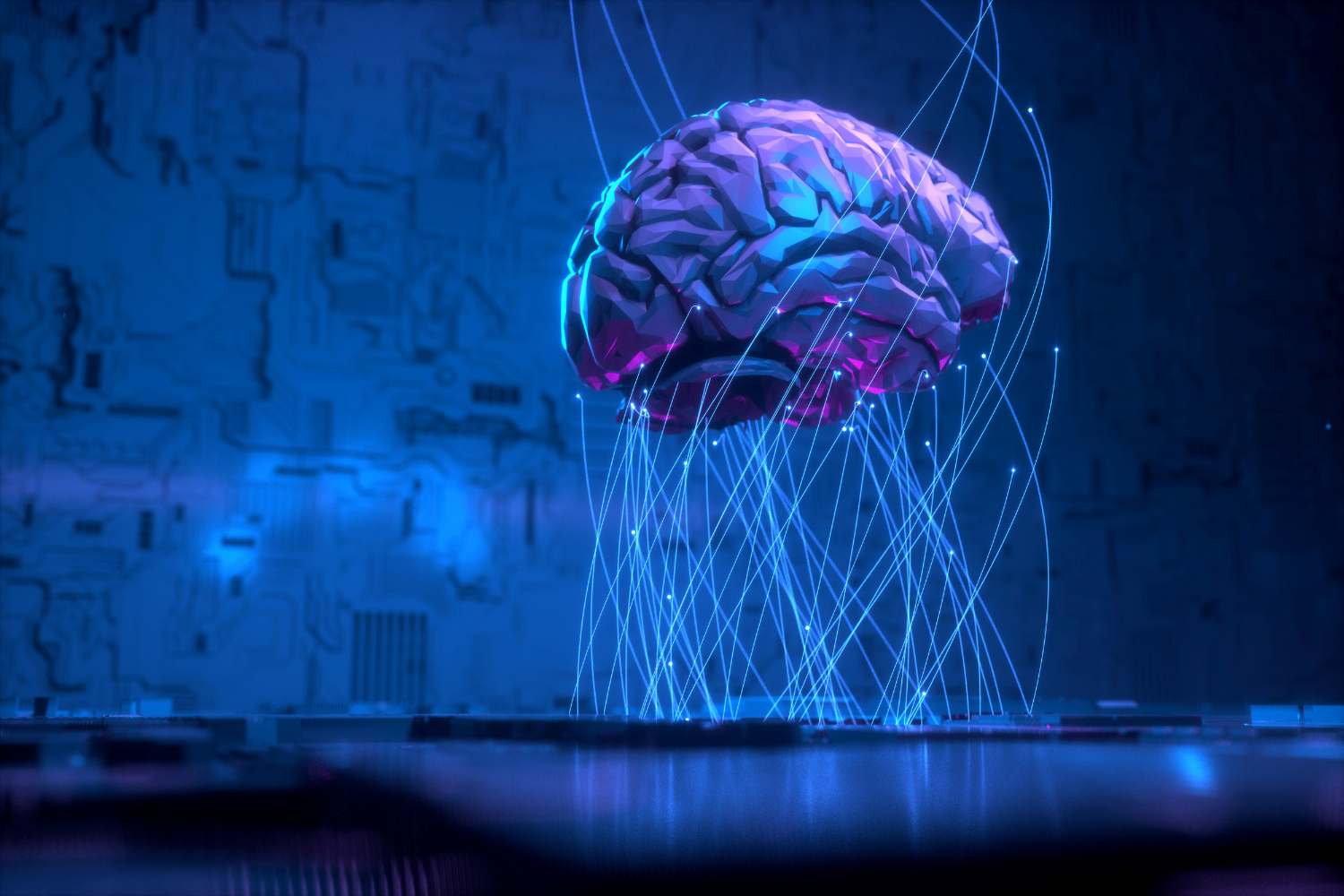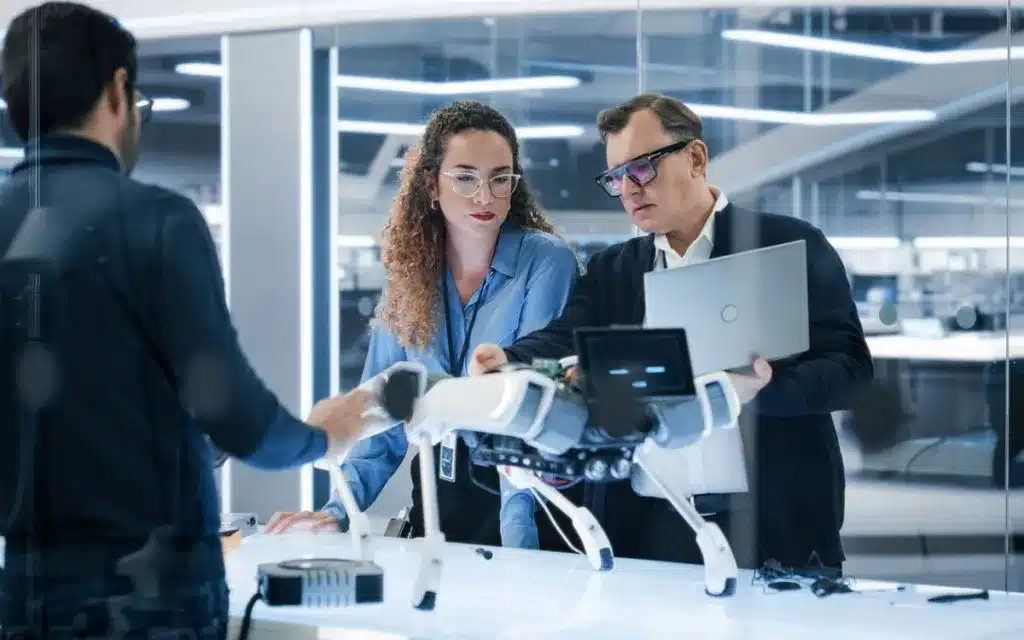Ads
The future we once imagined is now a tangible reality. We are witnessing a technological revolution, and Artificial Intelligence (AI) is at the forefront, transforming our lives in unimaginable ways. In this post, we'll explore the world's most advanced AI technologies of 2025 and how they are impacting our daily lives.
We'll explore the fascinating world of AI, exploring its diverse applications in different sectors. We'll discuss its advancements in medicine, economics, education, and many other areas, highlighting how these innovations are changing the course of humanity.
Ads
This content will also open a discussion on the ethical and security challenges posed by AI. Despite its obvious benefits, it's crucial to consider the potential implications and risks. Therefore, we'll address issues such as data privacy, technological unemployment, and the dilemma of controlling these intelligent machines.
We'll also showcase some of the most sophisticated AI technologies already in operation. From companion robots to medical diagnostic systems, AI is paving the way for a future where technology and humans coexist in a more integrated way.
Ads
Finally, we'll provide a glimpse into what the future could look like with AI. Are we on the path to a technological utopia, or do more dystopian times lie ahead? No matter which scenario is more likely, one thing is certain: AI is already here and is redefining what it means to be human in the 21st century. Get ready for an exciting journey into the world of Artificial Intelligence.
The main AIs in 2025
Artificial intelligence (AI) has advanced by leaps and bounds in recent years, and by 2025, AI will play a vital role in our daily lives. Some of the most advanced AI in the world include:
- OpenAI GPT-3This AI language model can generate human-made text that's nearly indistinguishable from human-written text. It's capable of translating languages, answering questions, writing essays, and more.
- DeepMind's AlphaGoThis AI program was the first to beat a human champion at the ancient board game Go. Its successor, AlphaZero, can teach itself to play games like chess, shogi, and Go without requiring human input.
- IBM WatsonWatson has found applications in a variety of fields, from disease diagnosis to data analysis and customer service automation.

The role of AI in our lives
AI has become an integral part of our lives, and its influence will only continue to grow. Here are some ways AI is transforming our daily lives:
- Streaming servicesAI algorithms are what decide which movies and TV shows are recommended to us on services like Netflix and Amazon Prime.
- Virtual assistants: Siri, Alexa, Google Assistant, all these virtual assistants that we use daily are powered by AI.
- Autonomous driving:Although still in its early stages, autonomous driving is set to drastically change the way we travel.
The implications of AI in the workplace
AI is also having a significant impact on the workplace, both in terms of efficiency and the skills required by workers.
Automation and efficiency
AI has the potential to automate many tasks that currently require human intervention, increasing efficiency and saving businesses time and money.
- Robotic Process Automation (RPA): This technology uses AI to automate repetitive and monotonous tasks, freeing workers to focus on more strategic tasks.
- Data analysisAI can process and analyze large amounts of data much faster than a human could, allowing businesses to make data-driven decisions more efficiently.
The future of job skills
With AI taking over an increasing number of tasks, the skills required in the workplace are changing. Instead of manual or repetitive skills, workers of the future will need skills such as critical thinking, problem-solving, and the ability to work with technology.
The challenges of AI
Despite its many benefits, AI also presents a number of challenges.
Ethical and privacy issues
The use of AI raises important ethical and privacy questions. For example, who is responsible if a self-driving car crashes? How do we protect people's privacy when AI algorithms have the ability to collect and analyze vast amounts of personal data?
The risk of inequalities
The rise of AI also risks creating inequalities. Those without access to the technology or the education necessary to work with it could be left behind. Furthermore, automation could lead to job losses in certain industries.
The future of AI
Despite these challenges, the future of AI is bright. With advances in machine learning, big data, and cloud computing, AI is poised to continue transforming our society in ways we can barely imagine. However, it's important that we address the ethical, privacy, and inequality challenges it poses to ensure everyone can benefit from its advantages.

Conclusion
In conclusion, Artificial Intelligence (AI) has come a long way and continues to advance by leaps and bounds. The world's most advanced AIs in 2025, such as OpenAI GPT-3, DeepMind's AlphaGo, and IBM Watson, are redefining how we interact with the world, from streaming services to virtual assistants and autonomous driving. In the workplace, AI promises to increase efficiency and change required job skills, with a focus on abilities such as critical thinking and the ability to work with technology.
However, we must also consider the challenges posed by AI, such as ethical and privacy issues and the risk of inequalities. As AI continues to develop, it is essential that we address these issues to ensure everyone can benefit from AI advances.
Looking to the future, AI is poised to continue transforming our society in ways we can't yet fully imagine. With advances in machine learning, big data, and cloud computing, the future is now, and AI is at the heart of this exciting new world. However, we must remember that while AI has enormous potential, it is also our responsibility to use it ethically and fairly.



